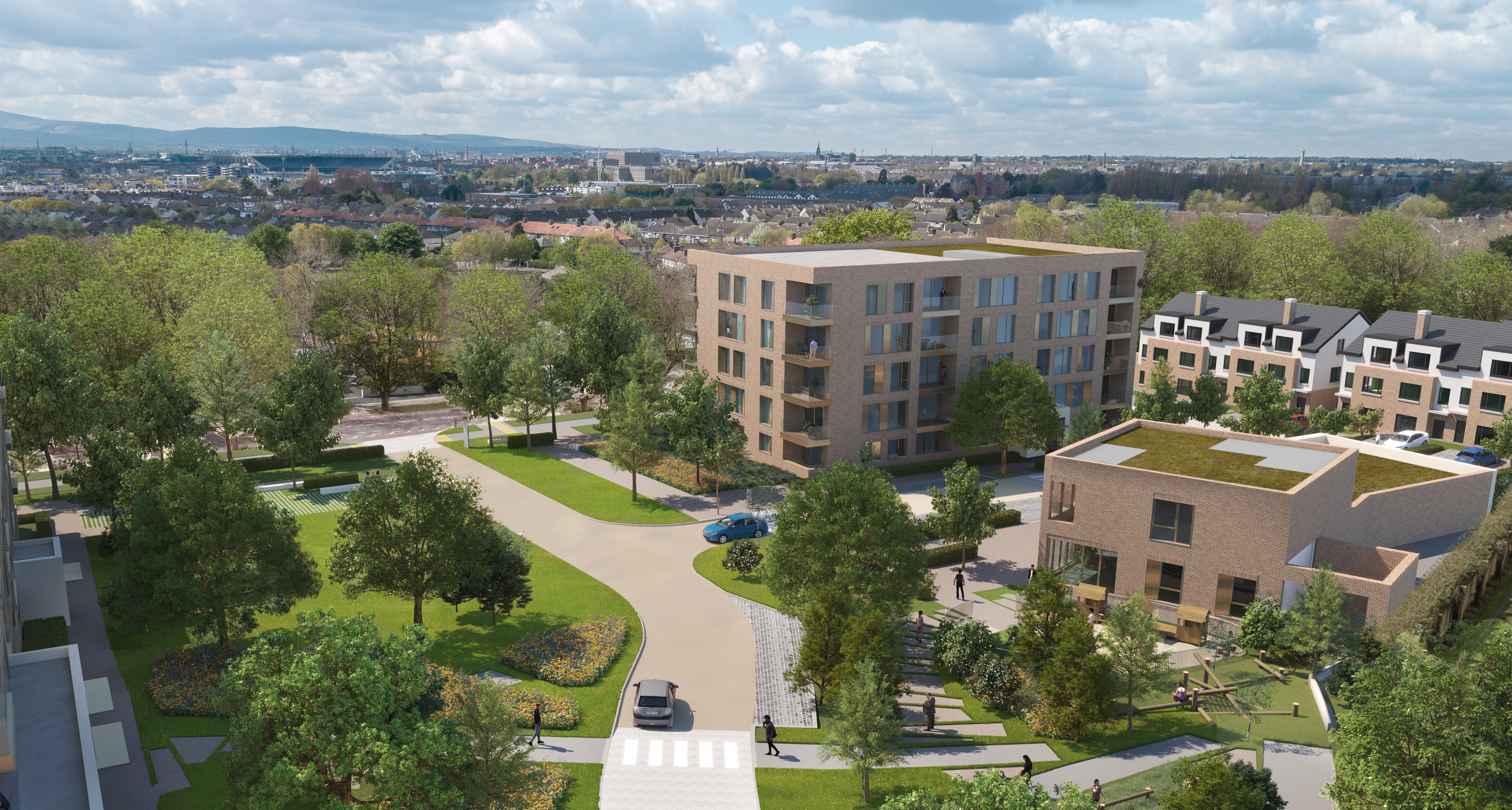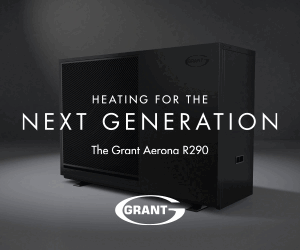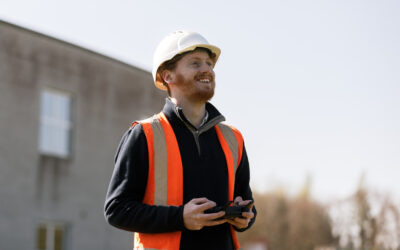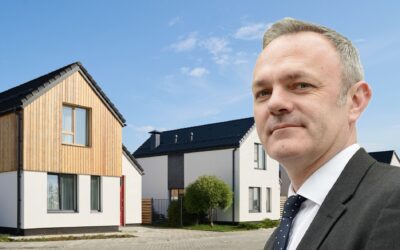
Ireland has committed to a net-zero energy system by 2050. Reliably powering more than 30% of Ireland’s total primary energy needs, 40% of heating and 50% of all electricity generation, the national gas network is vital to achieving this. Ireland’s €2.7bn, 14,617km gas network is considered one of the safest and most modern gas networks in the world, providing safe, reliable and affordable energy to meet the heating needs of over 680,000 Irish homes and growing.
As the cleanest conventional fuel available, natural gas has been reducing household emissions since the 1970s. By replacing natural gas with renewable gases, such as biomethane and hydrogen, the national gas network will continue to play an integral role in Ireland’s cleaner energy future. With the increasing demand for homes and the requirement for higher density developments in urban areas, new apartment block developments are proving a suitable solution for planners and developers alike.
The gas network offers an ideal solution for delivering efficient and sustainable heating systems today, that will continue to reduce the carbon footprint of each connected building as the volume of renewable gas in the network rises. Meeting NZEB standards with natural gas Recognising the scale of the climate challenge, the government introduced more stringent requirements under Part L 2019 of the Building Regulation, Conservation of Fuel and Energy.
Within these regulations is a requirement for all new buildings to consume a low amount of energy for their operation and that a large portion of this energy should come from a renewable source. The commonly referred to Nearly Zero Energy Buildings (NZEB) standards require new dwellings constructed to be 70% more energy efficient and 65% more carbon efficient than a house built in 2005.

Gas Networks Ireland’s Residential Connections Manager Lar Burke
“The ability for developers to comply with the new regulations has been supported by the wide and varied increase in the types of renewable energy technologies available on the market,” said Gas Networks Ireland’s Residential Connections Manager, Lar Burke.
“The installation of these technologies is simplified when you have the floor or roof space to install them. While most new, three-bedroom semi-detached homes have the space, multi-storey, apartment building developments, where both roof space and internal apartment space is at a premium, do not. Networked gas in combination with other technologies, such as combined heat and power (CHP) is the ideal solution for these apartment blocks.”
Meeting construction demand sustainably with natural gas With the continued increase in the development of apartment blocks, Gas Networks Ireland is focussed on providing sustainable long-term solutions for developers as part of its commitment to delivering a cleaner energy future for Ireland.
With affordability a key component in the provision of housing, natural gas in combination with other technology options can support developers to achieve NZEB standards and an ‘A’ building energy rating (BER) in a cost-effective way. With every new apartment development comes the requirement to provide a robust, energy efficient solutions that meets all NZEB requirements. Any solution must also offer security of supply and the flexibility for future decarbonisation.
Developers and their design teams can meet this challenge by using networked gas in combination with other technologies, such as CHP, to produce robust heating systems that not only provide constant heating and hot water to each individual apartment, but also supply renewable heat to the building.
“A natural gas CHP system offers great flexibility. In addition to the system being compatible with renewable gases, it can also be linked into a national district heating system, thereby providing adaptability for future decarbonisation,” Mr Burke said. “These innovative communal heating systems comprising of CHP units and standard system central plant gas boilers that work in partnership with renewable technologies, such as air-to-water electric heat pumps or solar photovoltaic (PV) panels, and contribute to the building’s overall renewable energy contribution.”
Gas Networks Ireland recently published a case study outlining how this type of communal heating system has been successfully deployed by one of Ireland’s leading developers, Cairn Homes PLC, whose Griffith Wood development comprises 342 apartments across six blocks ranging in height from four to seven stories.
The apartments have achieved an A BER rating and are fully compliant with the domestic 2019 Part L building regulations. This centralised heating system is led by a natural gas CHP system and supported by gas boilers. It supplies hot water to the heating medium and electricity to the building, while PV panels on the roof also supply renewable electricity to the development. Standard system gas boilers are installed to ensure that when the CHP system is affected by high demand, each apartment continues to enjoy reliable heating and hot water.

Griffith Wood
With Griffith Wood, Cairn’s primary objective was to deliver a sustainable development that maximised the use of available space. By utilising otherwise redundant roof space, 103 high efficiency solar PV panels were installed allowing large amounts of renewable electricity to be generated on the rooftop. This then allowed for the development of a smaller central plant room area and maximised space for the apartments.
“Homeowners want efficient and environmentally friendly solutions, but they also want solutions that are familiar, reliable and affordable. We are supporting developers to build award-winning developments which showcase successful, sustainable developments leveraging the benefits of natural gas delivered safely and securely through the national gas network,” Mr Burke said.
“The best part is, as the volume of biomethane on the national network increases, homes connected to the gas network will increasingly reduce their carbon footprint without needing to change a thing, making gas a great solution in sustainable, modern homes.”
More about renewable gases First introduced onto the national gas network in 2019, biomethane is a carbon neutral renewable gas made from farm and food waste that is largely identical to natural gas and compatible with the existing gas network, boilers, technology and appliances, meaning that it can seamlessly replace natural gas in residential heating systems and power generation.
Hydrogen is a carbon-free renewable gas that can be produced from renewable electricity and stored until needed, making it an attractive option to decarbonise Ireland’s energy system and a strong example of how greater cohesion between our gas and electricity systems can drive a cleaner energy future for Ireland.
While blends of up to 20% hydrogen could be transported on the existing gas network today, transporting pure 100% hydrogen will require some modifications. Gas Networks Ireland is developing a Hydrogen Innovation Centre in West Dublin to test hydrogen off-network on pipelines, meters and appliances.
According to Renewable Energy Ireland’s new ‘40 by 30’ Report, renewable gas will be critical to decarbonising Ireland’s heating sector. The expert report outlines a route to achieving a 40% reduction in carbon emissions from Irish heating by 2030, with renewable gas playing a central role in achieving Ireland’s climate action goals.
“Decarbonising Ireland’s residential heating sector has proven to be very challenging and will require a range of technologies, including renewable gas and electrification, as well as energy efficiency measures,” Mr Burke said. “What is clear is that gas-fuelled communal heating systems – natural gas today and increasingly renewable gas in the future – in conjunction with CHP technologies, is the optimal solution for multi-apartment developments to achieve NZEB standards and reduce the carbon footprint of domestic heating in Irish homes.”

To learn more about how you can achieve NZEB standards for your development and provide your customers with all the benefits of natural gas from the national network, please visit www.gasnetworks.ie/newhousing for more information and to arrange a free consultation. Alternatively, you can contact us on 1800 411 511.







